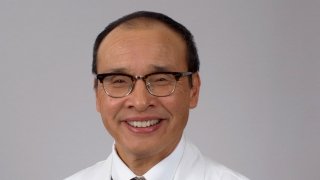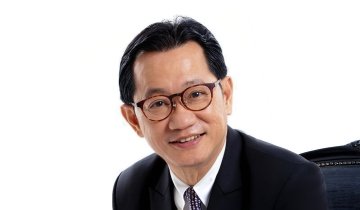Top-shelf clinical care and cutting-edge medical research are, for obvious reasons, at the core of Keck Medicine of USC’s mission. But there have been times, according to James Hu MD, EdD ’21, when this laser focus on medical excellence has left its leaders unable to solve problems like physician burnout, lack of engagement and faculty retention.
“Leaders at many academic institutions are chosen because they are experts in their specific fields, not their leadership qualities,” said Hu, a physician and medical director of the Sarcoma Program of USC. “I felt that leaders were coming up with linear solutions to complex problems focused on the individuals and not the work environment.”
Though Hu wanted to help facilitate systemic change within Keck Medicine, he also believed he needed to learn some new, nonmedical skills. In 2018, he decided to pursue a doctorate in organizational change and leadership at the USC Rossier School of Education.
Hu says his time at USC Rossier gave him new insights into the skills that leaders need to employ to lead successful organizations. To put his new knowledge to the test, he is now teaching a leadership training course for program directors and division chiefs at Keck Medicine that is based on research he conducted as an EdD student.
For his dissertation, Hu created a survey that he sent to 1,145 colleagues about physician burnout and leadership behaviors. It helped him understand which leadership behaviors boosted morale and engagement among his colleagues and which fell flat.
Though there are many leadership training courses already available through books, online and in person, the course Hu created, the Keck School of Medicine Leadership Program, is unique because it is homegrown. “This one is grounded in data about our unique opportunities and barriers and being taught by instructors from USC,” said Hu.
In the 11-month program, which launched in the fall, participants attend lectures on subjects including theories of leadership and systems thinking. They do homework and attend in-person sessions to discuss the material as it relates to challenges they are facing. Each student will create an implementation plan to overcome a problem they identify that is unique to their department.
“They will come to learn how to address complex problems and learn when they need to implement new processes because the existing framework is failing,” said Hu. The course is something of a departure, in that teaching colleagues from other USC schools is not the norm, said Maria Ott, the Irving R. and Virginia A. Melbo Chair in Education Administration and a professor of clinical education at USC Rossier. Nevertheless, Ott—one of the instructors in Hu’s course—said the leaders at USC Rossier believe that cross-discipline sharing can be enormously beneficial.
“Leadership development is core to what we do at USC Rossier,” said Ott. “And while people may not think that doctors need leadership training, we believe that every field needs it and can be improved by developing the leadership potential of their team.”
Ott also noted that 27 (more than one-third) of the directors and division chiefs at Keck Medicine signed up for the course, an indication that there is demand for this kind of training and a broad commitment among the leaders at Keck Medicine to improving the organization.
“If we were offering something they didn’t need or didn’t want, they wouldn’t have signed up for it,” said Ott. “It’s a compliment to Dr. Hu because he has a vision about taking a great organization and making it better. I think he has inspired them with his vision of where this organization can go in the future.”
For his part, Hu said he is impressed with the leaders who are taking his course because it is a commitment of time and effort to improve themselves and the organization. “Leadership is incredibly hard,” noted Hu, “but it can be taught, and my hope is that we can grow a cadre of informed and motivated leaders that will affect positive change in the culture of our organization.”





